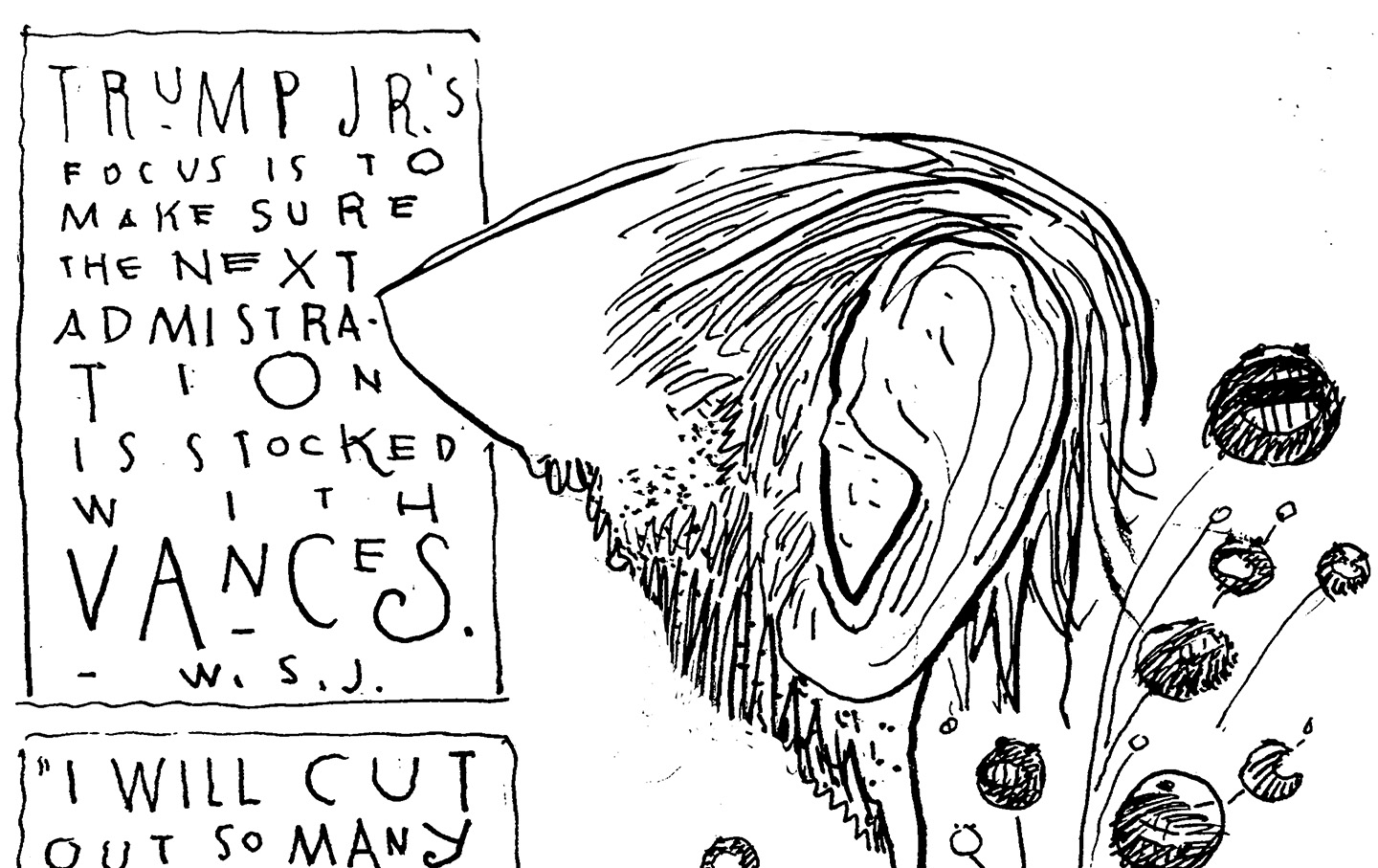What Does Anti-Arab Racism on Campus Have to Do With the War on Gaza?
Members of UCLA’s Task Force on Anti-Palestinian, Anti-Muslim, and Anti-Arab Racism describe the deep roots of the violence against those who support Palestinian rights.
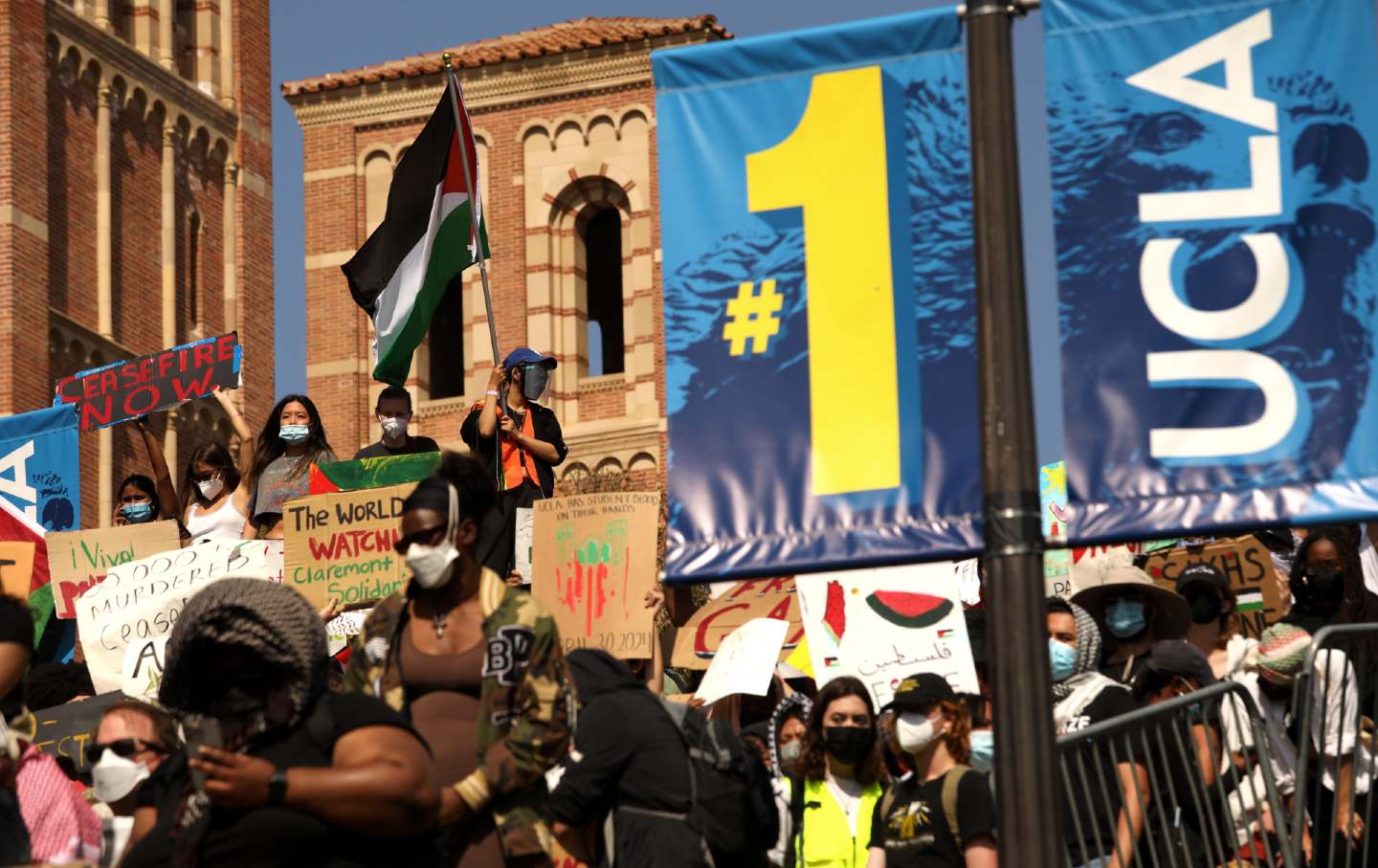
Pro-Palestinian protesters at the top of Janss Steps while others held a press conference at the bottom of the steps on the UCLA campus on May 1, 2024.
(Genaro Molina / Los Angeles Times via Getty Images)Pundits and politicians have been transfixed by what is supposedly a crisis of antisemitism on university campuses. This crisis is the carefully engineered climax of a long-standing project to conflate criticism of the Israeli state with racism against Jewish people; its aim is to discredit critics of Israel and, if possible, banish them from campuses across the United States. That’s no exaggeration: This could easily happen with House Resolution 894, which just passed the US House of Representatives by a wide margin, and would impose the International Holocaust Remembrance Alliance definition of the term antisemitism—a definition that has been disavowed even by one of its authors.
Among other problems, the forcible adoption of the IHRA definition would make it much more difficult to combat genuine antisemitism, because actual expressions of prejudice would be impossible to disaggregate from, say, protests against Israeli apartheid—which constitute “antisemitism” in the data compiled by the Anti-Discrimination League (ADL), which, not coincidentally, has been reporting a “spike” in antisemitism since October. Zionist groups have used the examples attached to the IHRA definition to render criticism of Israel as hate speech. If the IHRA definition becomes law, university students and faculty in US would likely be able to condemn every country—including their own—except for one.
Meanwhile, entirely—and, again, not coincidentally—the national focus on the supposed crisis of antisemitism has crowded out a different form of racism on college campuses, including our own at UCLA. To its credit, our university charged a Task Force on Anti-Palestinian, Anti-Muslim, and Anti-Arab Racism (alongside a separate Task Force on Antisemitism) to investigate the causes and results of this specific form of racism on our campus, especially in relation to the climate of hostility that has intensified since last October.
We write as members of this task force, whose report, published on May 13, describes the racism and violence faced by Palestinians, Muslims, Arabs, and anyone, including Jews, who express solidarity with Palestinians. As a task force charged to report on racism, the questions that we are most asked most often are: “What does race have to do with the genocide in Gaza?” and “What does it have to do with UCLA’s brutal response to expressions of Palestinian solidarity?”
In our report, we discuss harassment and punitive actions taken against UCLA students and faculty for their support of Palestinian rights. We focus on the violent attacks by Zionist counterprotesters on the Palestine solidarity encampment and the violence perpetrated by the police at the administration’s behest. The core of our findings is the administration’s—specifically Chancellor Gene Block’s—consistent dismissal of the lives of Palestinians and Muslims and anyone in solidarity with them. The administration’s decision to allow mob violence to go unchecked for four days, call the cops to violently repress student protesters, and continue with charges pending against them reflects Block’s policies with respect to Palestine advocacy over the last 13 years.
What the Jewish political theorist Hannah Arendt called “race thinking” and the Black anti-colonial theorist Frantz Fanon saw as the racial logic of colonialism underlies much of the violence directed at Palestinians and their supporters as well as UCLA’s responses to them. The most basic understanding of racism involves seeing it as a system that is based on two levels of humanity. Racism is not about “hate” or “bias”; instead, it is about the idea that the lives of the racialized matter less than the lives of the dominant group who reserve for themselves the category of the human.
The overt racism of the Zionist counterprotesters as they attacked the UCLA Palestine solidarity encampment was easy to detect. Racial slurs and the calls for death to “Hamas supporters,” a category into which all Palestinians and their supporters were put, made it clear whose lives have value and whose lives are rated as below that of animals. But there is another aspect of racism that is less obvious: This is the belief that the lives of Palestinians, Muslims, and Arabs do not matter because they are inferior people belonging to a premodern age, intrinsically violent people who must be killed for the superior side of the racial binary to thrive. This belief boils down to a protection of whiteness and white entitlement. Western nations have consolidated their whiteness through racism, marking those whose lands they have occupied as disposable because of the presumed failure of the colonized to enter modern life.
In the racist imaginary shared by Zionism and white supremacism, people of European origin are modern, enlightened beings committed to the rule of law, democracy, and gender equality. Non-Europeans are imagined to possess none of these things and to be intrinsically committed to violence. The counterprotesters who called the students of the encampment “terrorists” trafficked in these racist ideas about Palestinians and anyone associated with them. The imagined innate barbarism of Muslims, Palestinians, or Arabs provides the foundation for the repeatedly invoked notion that Palestinian men are violent patriarchs and that Palestinian society is deeply homophobic. When the counterprotesters at UCLA shouted to the students wearing headscarves, “Hamas would rape and murder you for what you’re wearing,” it is racist ideology that is in play. Notably, this chant did not prevent the counterprotesters from themselves threatening to rape female students of the encampment.
Since only one side is assumed to be violent, the violence committed on the side deemed more civilized is obscured, and in the case of Israel, the violence it has directed at Palestinians since Israel’s inception is either denied or rendered legitimate by virtue of the presumed innate violence of Palestinians. As feminists have reminded us, the violence Israel directs at Palestinian women and LGBTQ communities is likewise disavowed in this expression of civilizational superiority.
What kind of a society imagines that the killing of tens of thousands of people, among them thousands of children, is a necessary evil without which it cannot survive and thrive? Such a deep commitment to the elimination of a people has no other origin but in racism—a fundamental belief in two hierarchical levels of humanity. This is what racism has to do with genocide, and what it has to do with UCLA’s persistent devaluing of the lives of Palestinians, Muslims, Arabs, and anyone in solidarity with them.
Racism shapes the aggressive responses of UCLA to the Palestinian struggle for freedom. The circulation of the mendacious narrative that Jewish students’ feelings of discomfort and fear are a reaction to antisemitism, for example, draws its coherence from the belief that Palestinians, Muslims, and Arabs are people especially given to hatred of Jews. At UCLA, the impetus for an institute for the study of hate originated in the belief that Palestinian rights advocates are fundamentally hateful toward Jews by virtue of being critical of Israel’s policies toward Palestinians. Along the same lines, the academic study of racism is attacked not just by the far right but also by some supporters of Israel who deem critical race studies to be especially antisemitic and who have attempted to restrict the study of settler colonialism altogether. At UCLA, one of the courses targeted by Zionist supporters is a course on structural racism offered to first-year medical students.
There is no more telling indicator of the connection between whiteness and the defense of settler-colonial regimes than the support that pro-Israel protests have received from white-supremacist groups. The Proud Boys, who chanted “we will finish what Hitler started” at the Palestinian solidarity camp at UCLA, did so without apparent protest from their Zionist allies who constituted a majority of the off-campus mob attacking the students in the encampment. The collapsing of pro-Israel positions with white-supremacist ones reveals the seam of racism that runs through the claims that courses and texts on settler colonialism are antisemitic.
Popular
“swipe left below to view more authors”Swipe →Israel, this line of argument goes, is not a settler-colonial society since Jews (who, also according to this Zionist logic, retain the same immutable essence over thousands of years of history and intercultural relations) possess a 6,000-year-old claim to the land, and anyone living on it in the intervening time has no legitimate claim to it, and more to the point, are not even a people: “There is no Palestinian people. There are Palestinian refugees,” Golda Meir, the first woman prime minister of Israel famously stated. To make Palestinians disappear in this manner requires a deep-seated belief in Palestinian inferiority. Dispossession and genocide, in other words, require racism and racial violence.
Racism is also operating when UCLA refuses to condemn the loss of Palestinian lives and continues to see Palestinian solidarity as “antisemitic” and in support of “terrorism.” As the students of the encampment concluded when UCLA did little to protect them from violence and, to the contrary, called the police who inflicted more violence, UCLA would rather see them be injured than to divest from a state engaged in a genocide against Palestinians. What else could explain this response but racism, a persistent belief that Palestinian lives do not matter? In our report, we trace Chancellor Block’s policies with respect to Palestine advocacy over the past 13 years, noting his repeated invocation of Students for Justice in Palestine as “intolerant” and his endorsement of a UC-wide report of 2012 that recommended the abolition of Palestine Awareness Week on the grounds that Palestinians and their advocates were given to hate and banning them was akin to banning the KKK off campus.
As a Task Force examining anti-Palestinian, anti-Muslim, and anti-Arab racism on UCLA campus, we watched helplessly as the long-standing refusal to value Palestinian lives culminated in the horrendous attacks by the counterprotesters on the Palestine solidarity encampment (attacks that have still been all but ignored by the administration), police brutalization of students, and arrests of peaceful protesters, which continued even after the encampment itself had been removed. As the anti-Palestinian, anti-Muslim, and anti-Arab racism continues, many of us see the violent repression of peaceful protest and the attacks on academic knowledge about Palestine, racism, and settler colonialism as nothing short of the end of the university.
And, of course, we note the painful irony that our chancellor, Gene Block, has been summoned to testify before Congress about a crisis that exists primarily in the imagination of Zionist institutions and right-wing politicians—and not about the actual crisis on campus that has led to dozens of students being injured and hundreds arrested. That crisis doesn’t count—after all, it concerns only an “inferior” people.
Can we count on you?
In the coming election, the fate of our democracy and fundamental civil rights are on the ballot. The conservative architects of Project 2025 are scheming to institutionalize Donald Trump’s authoritarian vision across all levels of government if he should win.
We’ve already seen events that fill us with both dread and cautious optimism—throughout it all, The Nation has been a bulwark against misinformation and an advocate for bold, principled perspectives. Our dedicated writers have sat down with Kamala Harris and Bernie Sanders for interviews, unpacked the shallow right-wing populist appeals of J.D. Vance, and debated the pathway for a Democratic victory in November.
Stories like these and the one you just read are vital at this critical juncture in our country’s history. Now more than ever, we need clear-eyed and deeply reported independent journalism to make sense of the headlines and sort fact from fiction. Donate today and join our 160-year legacy of speaking truth to power and uplifting the voices of grassroots advocates.
Throughout 2024 and what is likely the defining election of our lifetimes, we need your support to continue publishing the insightful journalism you rely on.
Thank you,
The Editors of The Nation
More from The Nation
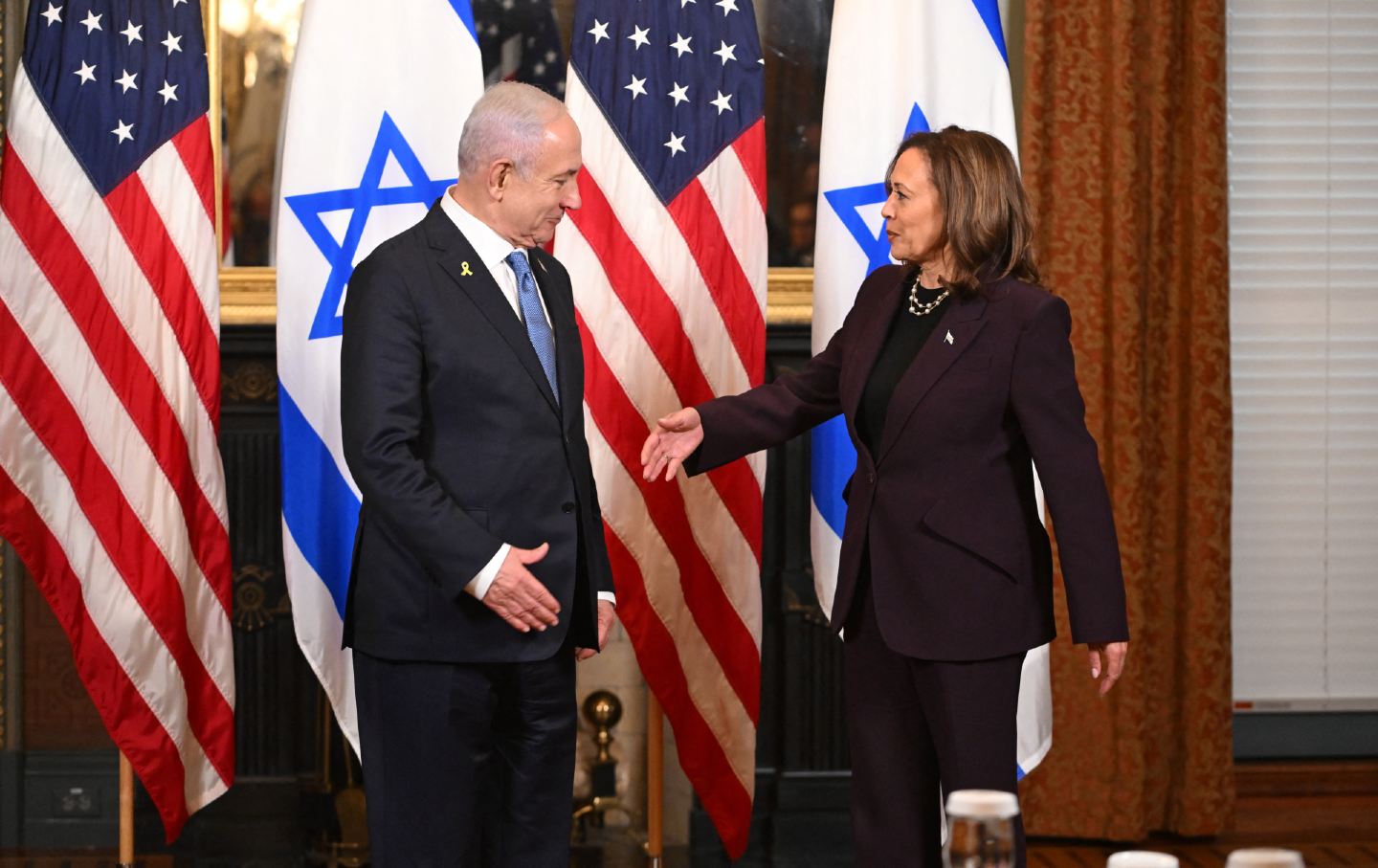
Kamala Harris Does Not Deserve the Endorsement of “The Nation” Kamala Harris Does Not Deserve the Endorsement of “The Nation”
The Biden administration’s action, and inaction, in Gaza—and her support for those policies—should have been enough to disqualify her.
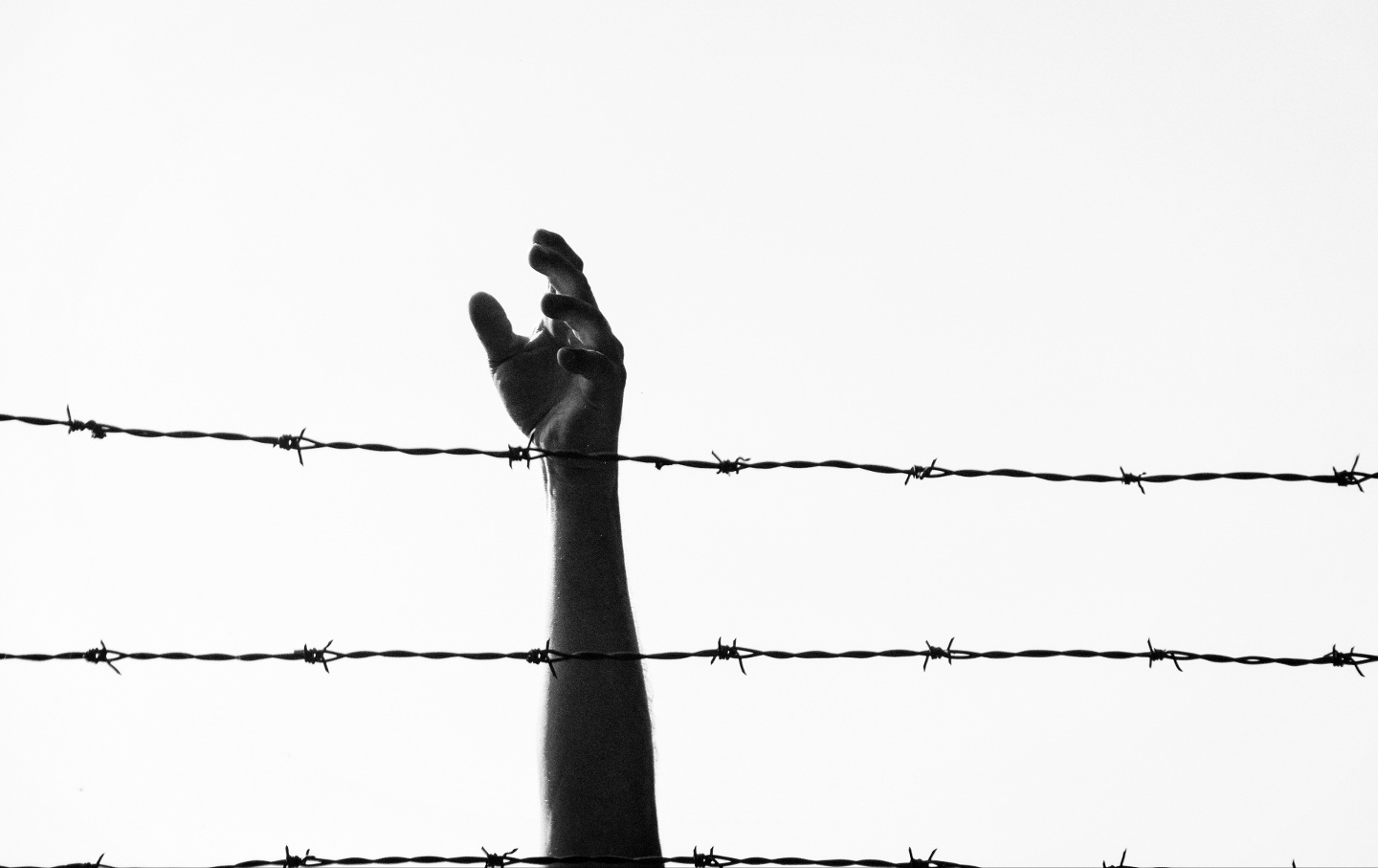
Why We Need Prison Journalism More Than Ever Why We Need Prison Journalism More Than Ever
If we lose incarcerated journalists, we lose a whole voice from the conversation.
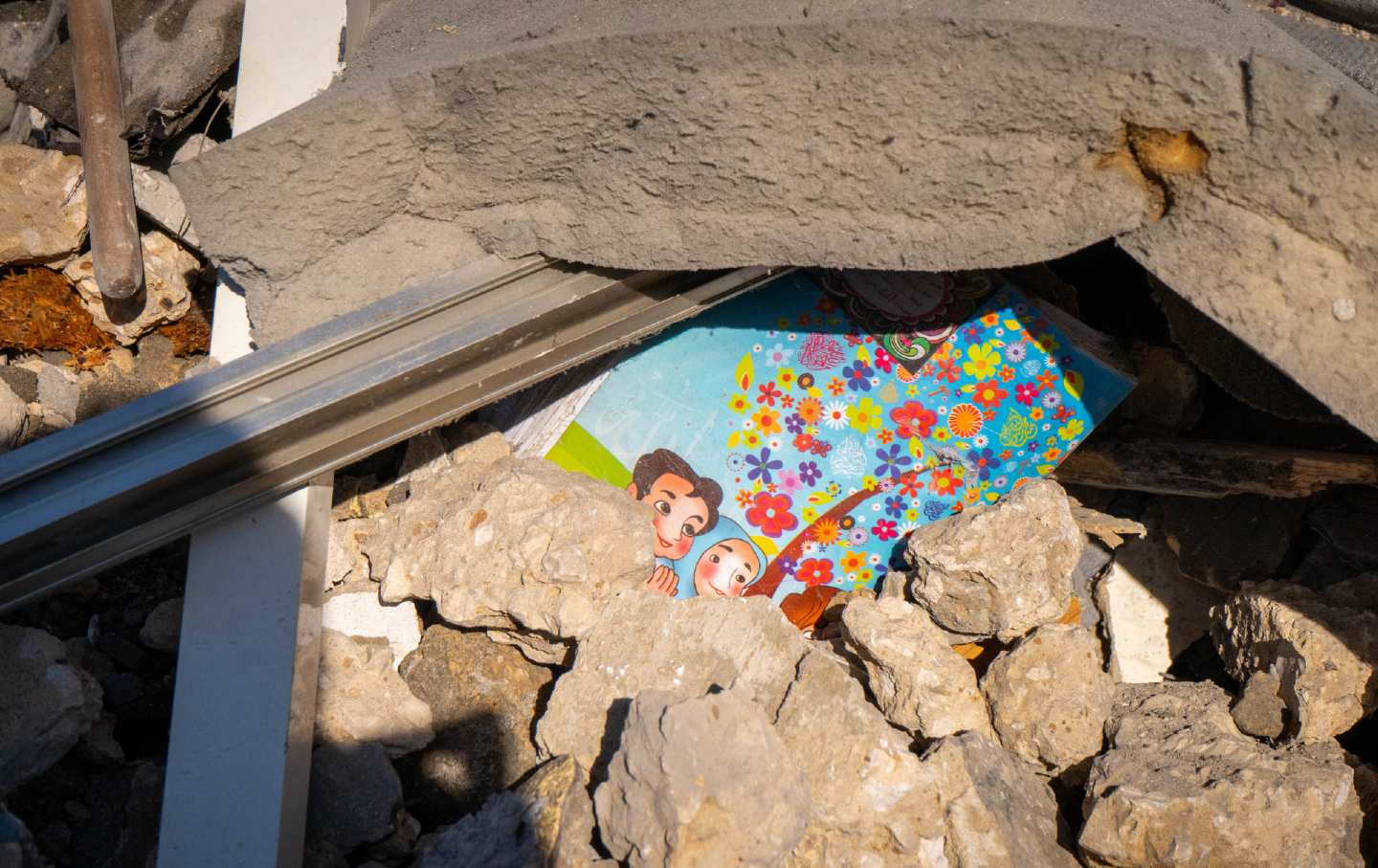
Stop Sending American Bombs to Israel Stop Sending American Bombs to Israel
Halting offensive arms transfers now would put the administration on a new path—and align Harris with the majority of Democrats who support conditions on weapons aid to Israel.
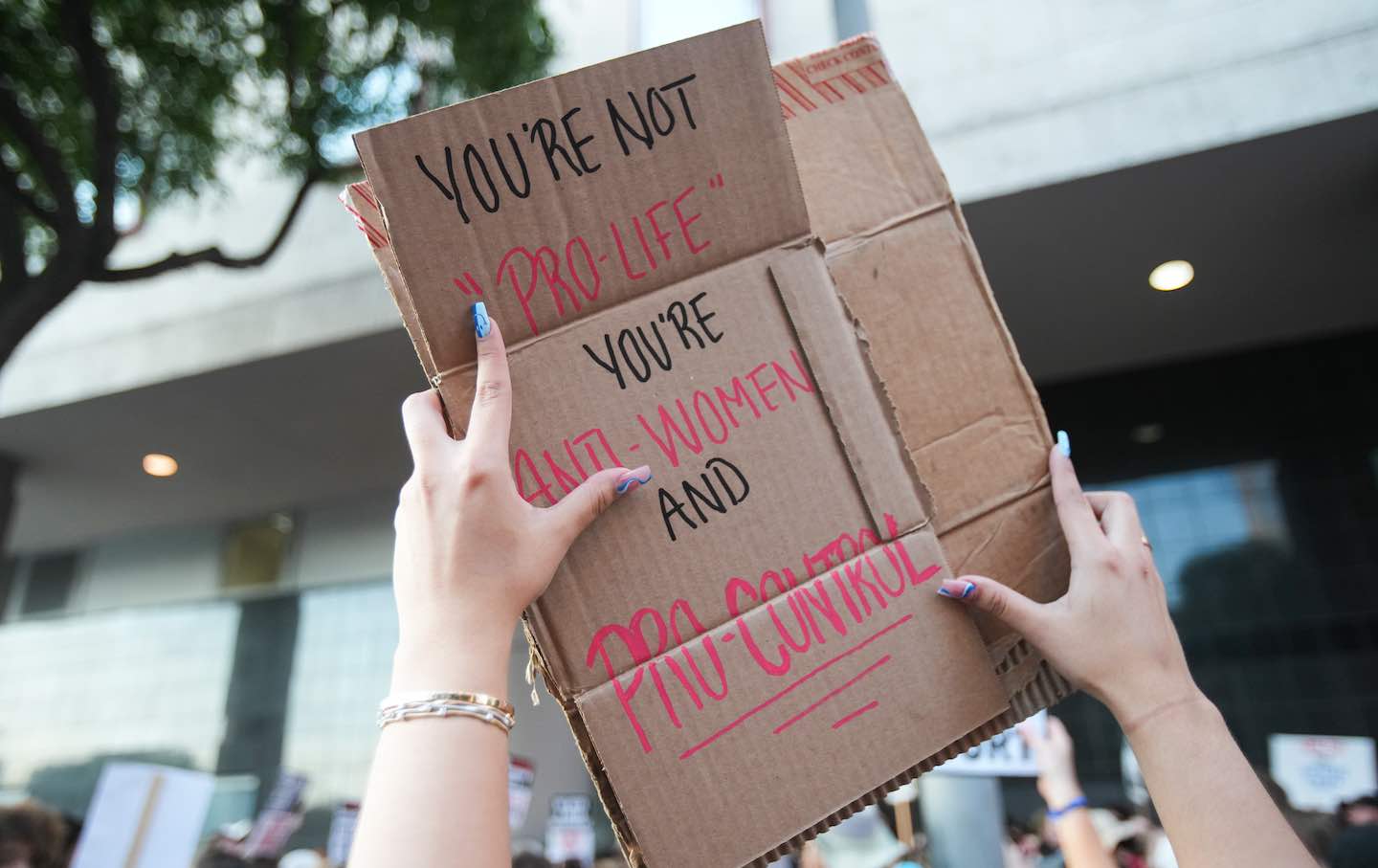
Texas Is Fighting to Access Out-of-State Abortion Medical Records Texas Is Fighting to Access Out-of-State Abortion Medical Records
State officials are suing the federal government over a Biden administration policy meant to protect patients and providers.
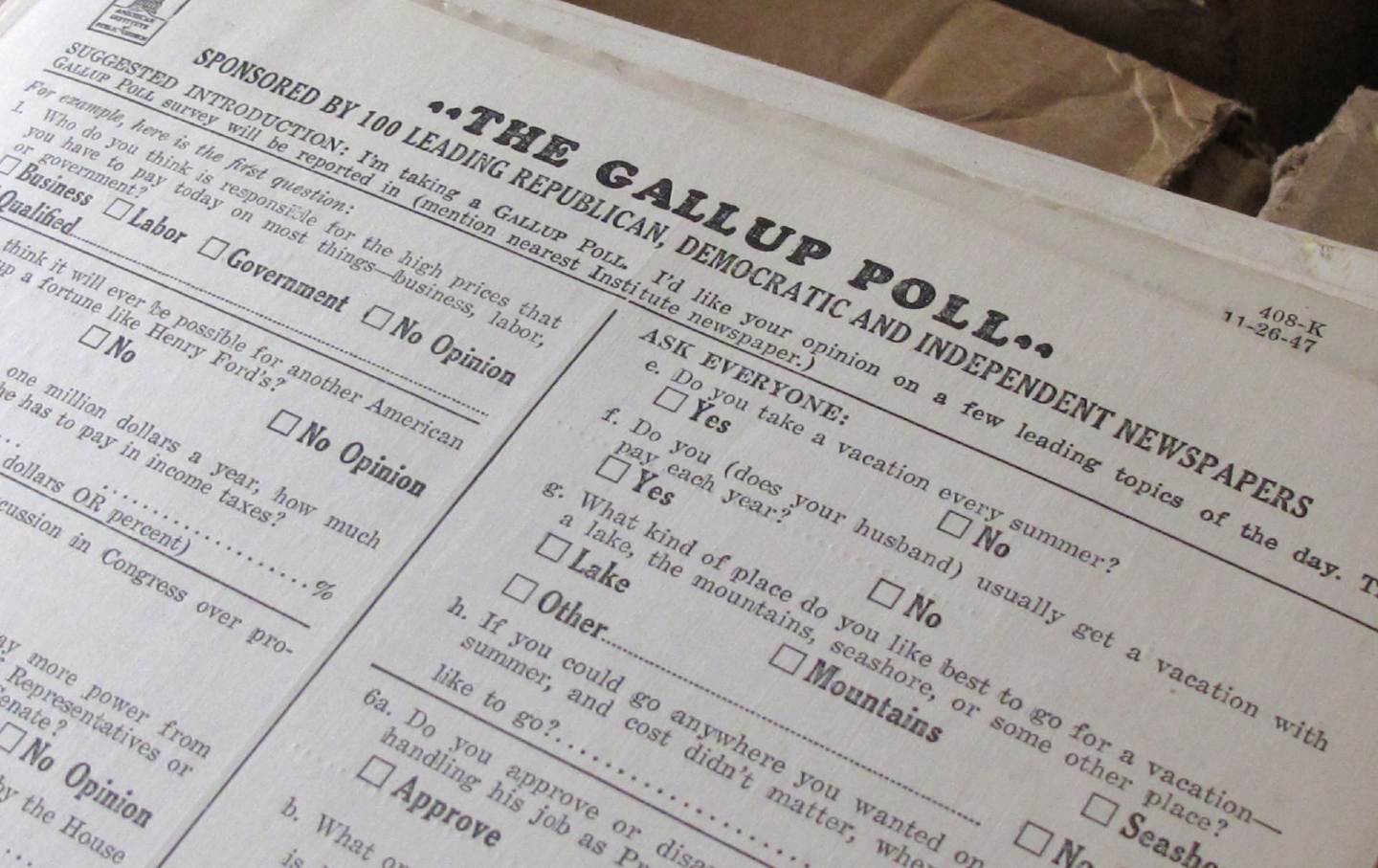
Lessons From the Birth of Modern Opinion Polling Lessons From the Birth of Modern Opinion Polling
As George Gallup pioneered new methods of surveying the public, The Nation opined on their dangers—and democratic possibilities.

